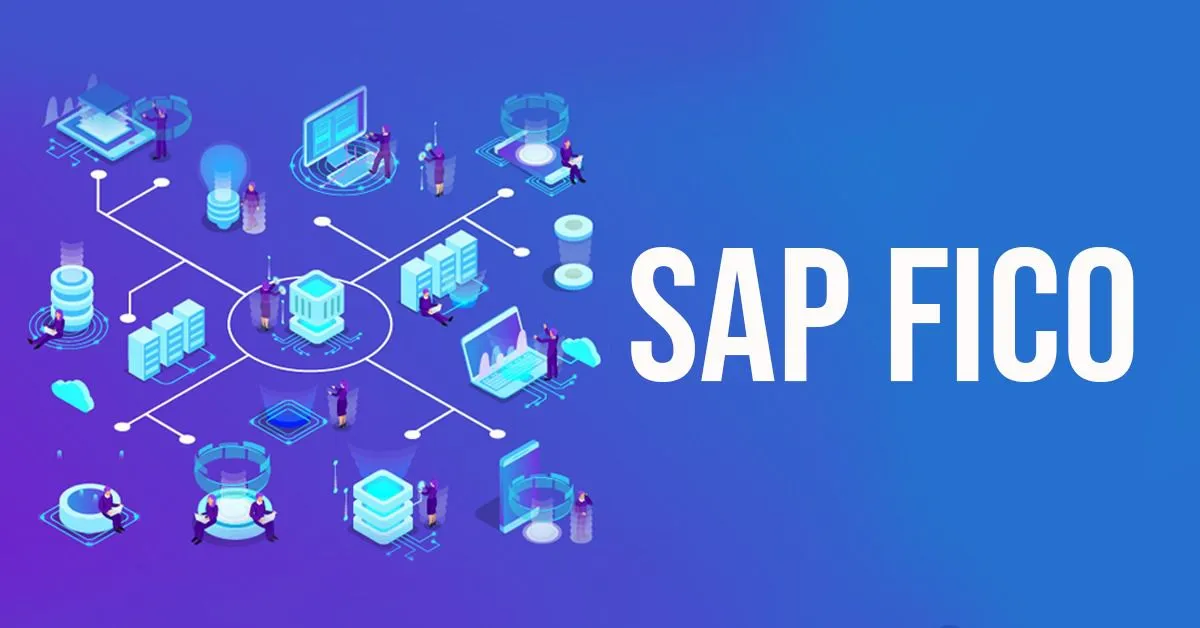

SAP: Modules, Benefits, and Career Opportunities
SAP (which stands for Systems, Applications, and Products) is a top company that creates software to help businesses run smoothly. One reason SAP is so well-liked is because it has different parts, called modules, each designed for specific business tasks. But with so many SAP modules to choose from, it can be hard to decide which one is right for you. In this blog, we’ll explain the most popular SAP modules and help you find the best match for your career goals and interests.
What is SAP ?
SAP stands for Systems, Applications, and Products in Data Processing. It’s a top software company that helps businesses run smoothly by managing tasks like finance, supply chain, human resources, and customer relations.
Many companies use SAP because it brings all their departments together in one system, making it easier to share information and work as a team. This improves efficiency, reduces mistakes, and helps businesses make smarter decisions.
What Are SAP Modules?
SAP modules are divided into two main types:
1. Functional Modules
These focus on specific business processes, such as:
- SAP FICO: Finance and Controlling
- SAP MM: Materials Management
- SAP SD: Sales and Distribution
- SAP HCM: Human Capital Management
- SAP PP: Production Planning
- SAP QM: Quality Management
- SAP PM: Plant Maintenance
- SAP CRM: Customer Relationship Management
- SAP SCM: Supply Chain Management
2. Technical Modules
These focus on programming and system management, including:
- SAP ABAP: Programming and development
- SAP BASIS: System configuration and administration
- SAP HANA: High-performance data processing
Understanding your strengths and interests is the first step to choosing the right SAP module.
Popular SAP Modules and Their Benefits
1. SAP FICO (Financial Accounting and Controlling)
Who Should Choose It: Ideal for individuals with a background in finance or accounting.
Core Features:
- Financial reporting and analysis
- Budgeting and cost management
- Asset accounting
Career Opportunities: Financial analyst, SAP FICO consultant, cost controller
Certifications: Financial Accounting and Controlling with SAP ERP
2. SAP MM (Materials Management)
Who Should Choose It: Best for those interested in supply chain management and inventory control.
Core Features:
- Procurement and inventory management
- Vendor management
- Material requirement planning
Career Opportunities: SAP MM consultant, supply chain analyst, inventory manager
Certifications: SAP Materials Management with SAP ERP
3. SAP SD (Sales and Distribution)
Who Should Choose It: Perfect for individuals with sales or marketing experience.
Core Features:
- Order and contract management
- Pricing and billing
- Customer relationship management
Career Opportunities: SAP SD consultant, sales manager, CRM specialist
Certifications: Sales and Distribution with SAP ERP
4. SAP HCM (Human Capital Management)
Who Should Choose It: Suitable for those passionate about HR and talent management.
Core Features:
- Payroll processing
- Recruitment and onboarding
- Employee performance management
Career Opportunities: SAP HCM consultant, HR analyst, payroll specialist
Certifications: SAP HCM with SAP ERP
5. SAP ABAP (Advanced Business Application Programming)
Who Should Choose It: Best for those with a programming background.
Core Features:
- Custom application development
- Enhancements and modifications
- Integration with other SAP modules
Career Opportunities: SAP ABAP developer, technical consultant, software engineer
Certifications: ABAP with SAP NetWeaver
6. SAP PP (Production Planning)
Who Should Choose It: Ideal for professionals in manufacturing or production.
Core Features:
- Production scheduling
- Material requirements planning
- Shop floor control
Career Opportunities: SAP PP consultant, production planner, operations manager
Certifications: SAP Production Planning
7. SAP BASIS
Who Should Choose It: Suitable for those interested in system administration and IT infrastructure.
Core Features:
- System installation and configuration
- Performance tuning
- User and authorization management
Career Opportunities: SAP BASIS administrator, system architect, IT consultant
Certifications: System Administration (SAP BASIS) with SAP NetWeaver
8. SAP SCM (Supply Chain Management)
Who Should Choose It: Ideal for individuals interested in optimizing supply chain processes and logistics.
Core Features:
- Supply chain planning and forecasting
- Inventory and warehouse management
- Procurement and supplier management
Career Opportunities: SAP SCM consultant, supply chain manager, logistics coordinator, procurement specialist
Certifications: Supply Chain Management with SAP ERP
Factors to Consider When Choosing an SAP Module
- Educational Background: Choose a module that matches your studies. For example, if you studied finance, SAP FICO might be a good fit for you.
- Work Experience: Think about the kind of work you’ve done before. If you’ve worked in sales, SAP SD could be a natural choice.
- Career Goals: Consider where you want to be in the future. Do you prefer working with business processes or focusing on technical tasks?
- Market Demand: Look into which SAP modules are in demand, either in your area or globally.
- Personal Interests: Pick a module that matches your interests. If you enjoy programming, SAP ABAP could be the right choice for you.
SAP is a powerful tool that helps businesses run more efficiently in different areas. It has many modules, allowing people to specialize in areas like finance, supply chain, human resources, and IT.
The right SAP module for you depends on your background, career goals, and interests. Whether you like programming, business, or technical management, there’s an SAP module that fits your skills. Mastering a specific module can open up many job opportunities and make you valuable to companies looking for efficient solutions.
As more companies need SAP experts, earning SAP certifications and improving your skills in a chosen module will boost your job chances and career growth. So, explore the SAP modules, find your strengths, and focus on building the expertise that will help you succeed in this field.
Share:
Most Popular


SAP Global Certification and its importance in 2025

Which SAP Course is Best After B. Com, B.E, or MBA

What is SAP Sales and Distribution (SAP SD)?
Subscribe To Our Weekly Newsletter
Categories
Related Posts

How SAP FICO Enhances Financial Planning and Controlling
How SAP FICO Enhances Financial Planning and Controlling In today’s business world, managing finances effectively is essential. SAP FICO (Financial Accounting and Controlling) is a

SAP in Logistics: A Game-Changer for Your Career Path
SAP in Logistics: A Game-Changer for Your Career Path Logistics management involves moving products, managing warehouses, and tracking inventory. With global trade increasing,logistics has become

SAP Material Management Course Eligibility
SAP Material Management Course Eligibility SAP Material Management (MM) is an important module of SAP ERP (Enterprise Resource Planning) that helps companies manage their buying

Why is SAP ABAP a Great Skill for Fresh Graduates?
Why is SAP ABAP a Great Skill for Fresh Graduates? In today’s fast-changing job market, it’s important for fresh graduates to stand out, especially those